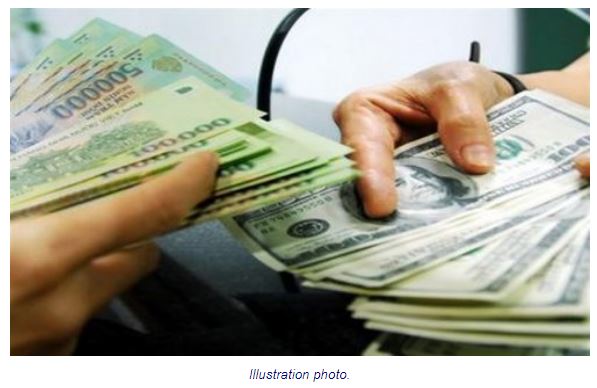Brokerage downplays impact of dollar strengthening on Vietnam’s stock market
According to the report, the dollar is selling in Vietnam at VND23,010 in the free market, up 1.3% as compared with the beginning of the year, which, according to HSC, were mainly due to (i) a potential escalation of trade tensions between the US and China, and (ii) expectation for a stronger USD against other currencies following the FED’s hinting of more aggressive rate hikes this year. HSC forecast FED may raise the interest rate four times instead of three this year.
The spread between the USD/VND rate on the free market and that in the inter-bank market increased by 0.72%, the highest since February 7, 2017. The rate was deemed not a source of concern but should remain under close supervision, said the report.
Additionally, the free-market value of Vietnam’s currency depreciated by 0.59% as compared with 4-6% depreciations of domestic currencies in Indonesia, India, the Philippines. In case of increasing the USD/VND rate in the free market, HSC expected the State Bank of Vietnam (SBV) will refrain from intervening until the spread between inter-bank and free market exchange rates widens by 1.5% – 2%.
HSC considered Vietnam’s stabilized macro-economic condition is the reason why it does not suffer from the issues that have driven much larger depreciations in other emerging markets.
Besides, Vietnam’s foreign debts are kept within the permitted limit, of which government debt was US$41.4 billion, or 21.7% of GDP at the end of 2015, according to the latest available data. Meanwhile, foreign debts of enterprises and credit institutions reached US$41.2 billion.
This year, HSC maintained its forecast the dong to depreciate by 2%, which is similar to the assessment of Michael Kokalari, Chief Economist at VinaCapital.
In his note, Kokalari added the risks stemming from a strong USD are not major concerns for Vietnam, because Vietnam’s trade surplus should exceed 2%/GDP this year (comparable to last year), because local companies have not borrowed extensively in USD, and because Vietnam’s FX reserves have increased from 2.3 months’ worth of imports at end-2016 to over 3 months’ imports now.
Furthermore, foreign investors generally seek long‐term capital gains in Vietnam, rather than attempting to earn high investment income via the “carry trade”, which is typically the main impetus for “hot money” outflows from individual emerging markets.


 English
English




